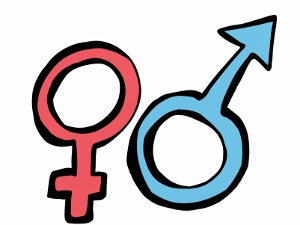

<p><img class=" alignright size-full wp-image-1339" src="http://schoolnewsnz.fastrackdev.com/wp-content/uploads/2015/03/SND13-wk2-Sex_education_survey_300x225.jpg" alt="SND13-wk2-Sex education survey 300x225" style="margin: 5px; float: right;" width="300" height="225" />Sex education research evaluated by a group of young people aimed to give them a voice in the best ways to get key messages to themselves and their peers.</p>
<p> <!--more--> </p>
<p>Researcher and nurse practitioner, Dr Karen Hoare, says the sex education leaflet, folded into a small square containing a condom and dubbed the &#8216;teabag&#8217; was given to students in years 11 to 13 at two high schools in different areas of Auckland in 2012.</p>
<p>During term one the following year school nurses approached students who had received the &#8216;teabag&#8217; sexual health promotion leaflet, seeking their consent to be interviewed for the research.</p>
<p>&#8220;The school nurses were popular points of contact for these young people on a variety of health issues including sexual health in these schools,&#8221; Dr Hoare says. &#8220;A group of 17 high school students, mainly Māori and Pacific Island students, agreed to be interviewed as part of this research project.</p>
<p>&#8220;Under Article 12 of the United Nations Convention on the Rights of Children, young people have the right to have a say in matters that affect them.&#8221;</p>
<p>Dr Hoare is a researcher at the University of Auckland&#8217;s School of Nursing and Department of General Practice and Primary Health Care and also a Nurse Practitioner working with school nurses in South Auckland high schools.</p>
<p>&#8220;The students&#8217; feedback shows us that the &#8216;teabag&#8217; was an acceptable and appropriate sex education tool to disseminate information to this age group,&#8221; she says.</p>
<p>New Zealand has one of the worst teenage pregnancy rates in the developed world, especially among Māori and Pacific Island young people, and the latest data shows this is not improving.</p>
<p>In 2002, New Zealand was the third highest in the OECD with rates of 52 per 1000 (both live births and abortions), and higher for Māori (100/1000) and Pacific Islanders (74/1000).</p>
<p>&#8220;In the last 13 years, there have been no government initiatives to address these high rates,&#8221; Dr Hoare says.</p>
<p>Teen pregnancies often interrupt the student&#8217;s education, and reduce their future employment <a class="wpil_keyword_link" href="https://www.schoolnews.co.nz/2015/10/developing-opportunities-at-school-with-a-view/" title="opportunities" data-wpil-keyword-link="linked" target="_blank">opportunities</a> and earning potential.</p>
<p>Teen pregnancies also result in a higher incidence of pre-term births and low gestational weight babies, she says. They are associated with an increased risk of poverty, lower health outcomes, especially for the baby, and with teen pregnancies in the next generation.</p>
<p>&#8220;This research also shows us that comprehensive primary health care where school nurses have been linked with primary care practitioners in Manurewa (either Nurse Practitioners or General Practitioners), resulted in a 66 per cent reduction in teenage pregnancies over three years. This is along with the great work that schools and teachers do for pastoral care.</p>
<p>&#8220;The teabag information was seen by students, to be both helpful and culturally appropriate,&#8221; Dr Hoare says.</p>
<p>&#8220;It was culturally appropriate in terms of being small, easy to conceal and therefore, confidential as well as containing reference to the Maori model of health and wellness.</p>
<p>&#8220;A number of students discussed how situations may arise when they needed contraception and the teabag reminded them to think about the consequences of unsafe sex,&#8221; she says.</p>
<p>The teabag was an attractive package that catalysed conversations and became a talking point among students. They described the leaflet that formed the packaging, as useful, easy to read and some kept it to refer to at a later date.</p>
<p>&#8220;Participants viewed it as a positive initiative and said they didn&#8217;t have access to information on contraception, or were too shy to get the information themselves, but that it was helpful and would be for the future too.</p>
<p>&#8220;There is scarce information available about sex education from young people&#8217;s perspectives, and a strength of this study was that the intervention was designed by young people for young people. The researcher who investigated the students&#8217; views was a young person and the &#8216;teabag&#8217; was designed by three student nurses.&#8221;</p>
<p>Dr Hoare says that the group of students interviewed for their opinions on the &#8216;teabag&#8217; were able to consent to the study without their parents&#8217; permission, but they were invited to tell their parents if they wanted to.</p>
<p>&#8220;Providing information to young people is central to their informed decision-making. Sexuality education and youth-friendly services should help young people explore, experience and express their sexuality in positive safe ways.</p>
<p>&#8220;Young people have a right to interventions (such as the teabag health promotion) that protect their fertility and sexual health,&#8221; she says.</p>

EXCLUSIVE: Teachers used to be paid two to three times more than minimum wage workers,…
After an “overwhelming” vote to reject the latest Government offer, secondary school teachers will begin…
Second-language learning should be compulsory, says a new report from a forum bringing together academics,…
A new entitlement aimed to improve access to learning support coordinators for schools with students…
Educators have raised questions about the Ministry of Education’s new secondary school subjects, set to…
Professional learning and development (PLD) for teachers needs to be higher impact for teachers and…
This website uses cookies.